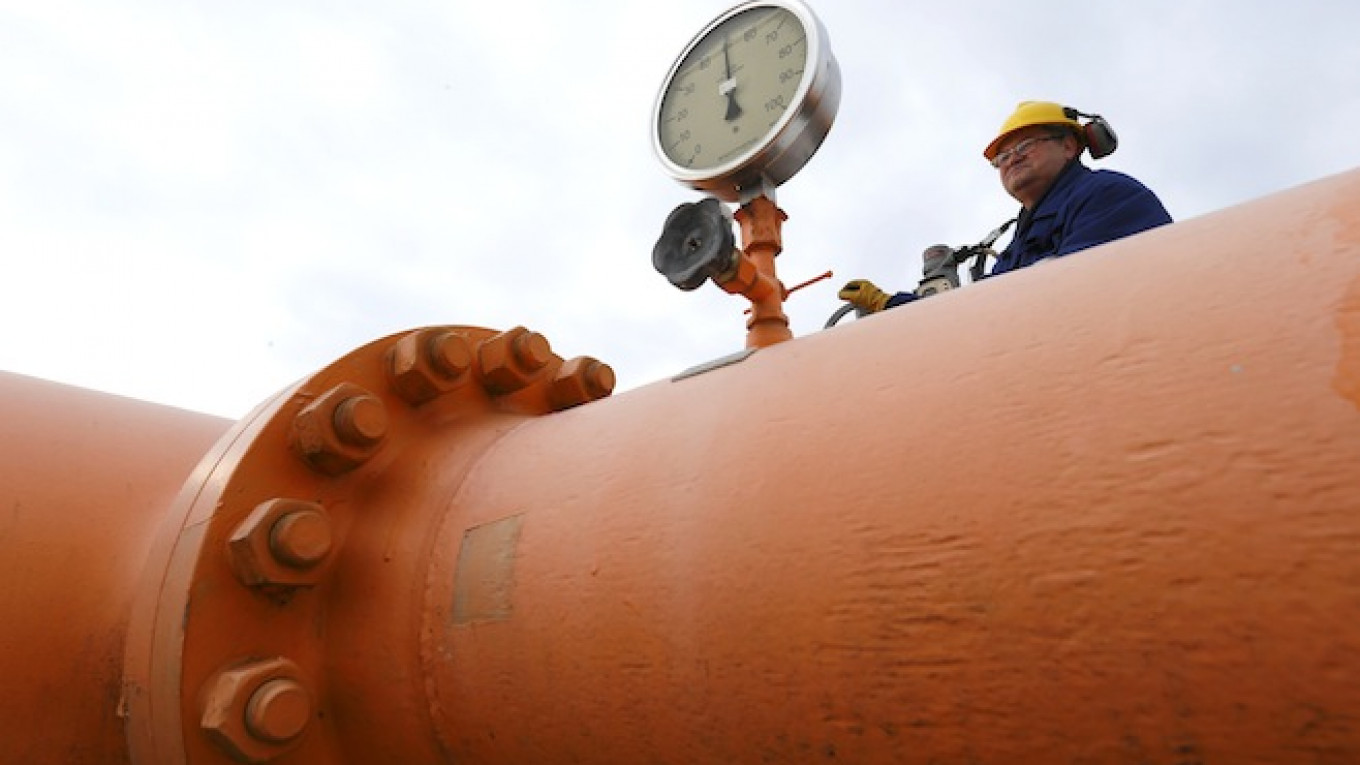ASHGABAT — The European Union, keen to lessen its dependence on Russia for energy supplies, expects to start receiving natural gas from Turkmenistan by 2019, European Commission Vice President Maros Sefcovic said in an interview.
Russia currently supplies around a third of Europe's gas needs, but Moscow's annexation of Crimea and its involvement in the military conflict in eastern Ukraine has added urgency to the EU's search for gas from alternative sources.
"We have good mutual understanding. For Turkmenistan it is very important to diversify its export options, while for the EU it is very important to diversify its imports," Sefcovic said in the Turkmen capital Ashgabat.
"Europe expects supplies of Turkmen gas to begin by 2019," he said, speaking in Russian.
Turkmenistan, a Central Asian nation with the world's fourth-largest reserves of natural gas, is keen to diversify exports of the fuel away from Russia which will cut its imports to 4 billion cubic meters this year from 11 bcm in 2014.
Sefcovic is overseeing the EU's push for an energy union, a single market for power and gas based on better connections between member states and aimed at curbing Russia's dominant position, particularly in the gas market.
Visiting Ashgabat on Friday, he met Turkish Energy Minister Taner Yildiz, Azerbaijan's Energy Minister Natiq Aliyev, Turkmen Deputy Prime Minister Baymurad Hojamukhamedov and Yagshygeldy Kakayev, who heads Turkmenistan's hydrocarbon resources agency.
"In this format we discussed all aspects referring to the trans-Caspian pipeline," Sefcovic said. "We made a big step in the strategic direction."
'Political Decision'
The project, designed to bring Turkmen gas to Europe across the Caspian Sea via the so-called "southern gas corridor" which includes Azerbaijan and Turkey, has been stuck for years due to political, ecological and financial uncertainties.
"Now there is a political decision that Turkmenistan will become part of this project and will feed the European direction," Sefcovic said.
Last year, Turkmenistan and Turkey signed a framework agreement to supply gas to the proposed Trans-Anatolian natural gas pipeline project (TANAP), which will take gas from Azerbaijan's Shah Deniz II field in the Caspian Sea.
To connect to TANAP, Turkmenistan needs to build its own, 300-kilometer link under the Caspian Sea, a disputed area between Russia, Kazakhstan, Turkmenistan, Iran and Azerbaijan.
TANAP will be built from the Turkish-Georgian border to Turkey's frontier with Bulgaria and Greece. Its construction is expected to be completed by the end of 2018 in order to start deliveries of gas from Shah Deniz II in 2019.
"Between 2019 and 2020 all these pipelines from Azerbaijan to the borders of Europe — in the direction of Greece, Albania and Italy must be built," Sefcovic said.
"It's everyone's expectation that Turkmenistan and Turkmen gas will be a very important part of this cooperation."
Sefcovic declined to say how much gas Turkmenistan could supply annually to Europe.
Turkmen officials said in March that "active" negotiations were under way to supply Europe with 10 to 30 bcm of gas per year. This compares to around 30-35 bcm which Turkmenistan annually exports to China.
Detailed Work Begins
A working group will be established in one month to further work on the trans-Caspian project, Sefcovic said. The group will include deputy energy ministers and foreign ministry experts, he said.
"We agreed that we would work in the format of Turkmenistan, Turkey, Azerbaijan and the EU, and that we will invite Georgia, because it is an important transit nation from the point of view of the southern gas corridor," he said.
Neighbors Russia and Iran, uneasy about the proposed new gas export route to Europe, have voiced objections to laying a pipeline on the bottom of the Caspian, saying this could harm the fragile ecology of the shallow sea.
Sefcovic said the EU had financed an ecological expertise of the project jointly with the World Bank.


